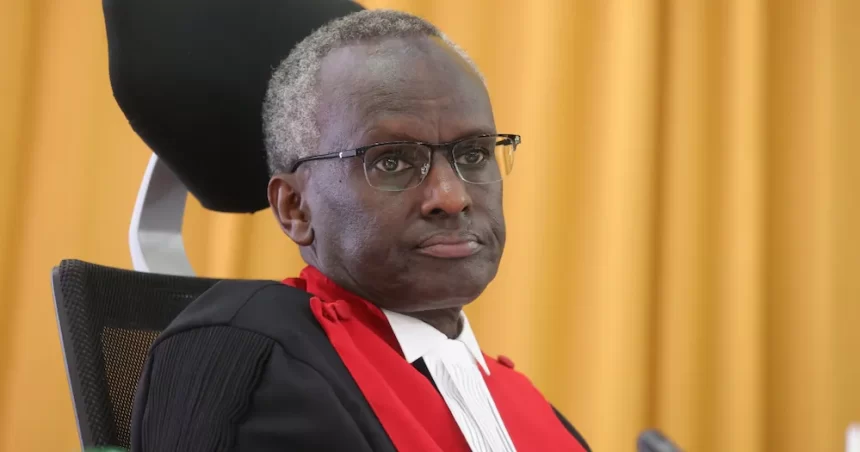Supreme Court Judge Isaac Lenaola has recently drawn attention to the judiciary’s technological shortcomings, specifically raising concerns about the collapse of the e-filing system during the high-profile impeachment case of former Deputy President Rigathi Gachagua. His remarks highlight potential risks to the integrity of the judicial process, especially with the upcoming 2027 General Election.
Lenaola, speaking at an event on December 6, questioned why the judiciary’s online platform failed at such a critical juncture. The malfunction occurred amid allegations made by petitioners Miruru Waweru, Andrew Njoroge, and Mutonga Kamau, who accused judiciary officials of deliberately tampering with the e-filing system during Gachagua’s impeachment case. This disruption, Lenaola emphasized, could have far-reaching consequences, particularly when the stakes are higher during a national election.
The judge’s comments resonate deeply with the current concerns over the technological infrastructure within Kenya’s judiciary. He urged the public to reflect on the implications of such system failures, particularly in the context of the 2027 General Election. Lenaola pointed out that the firewalls and safeguards designed to protect the judiciary’s e-filing system had seemingly become vulnerable, raising alarm over the potential for similar issues during future elections. “Imagine what may happen in 2027,” he remarked, urging the nation to take note of these vulnerabilities.
Justice Isaac Lenaola is a well-respected figure in Kenya’s judicial system, having earned his law degree from the University of Nairobi and furthering his studies at the Kenya School of Law. He has extensive experience in the legal field, having practiced law in Nairobi with a focus on commercial and land law. Lenaola has also served in several significant roles, including as a commissioner at the Peoples Commission of Kenya (PCK) and the Constitution of Kenya Review Commission (CKRC). His experience further includes roles as a member of the Judicial Service Commission and as a resident judge in various High Courts across Kenya.
Before ascending to the Supreme Court, Lenaola served as the presiding judge of the Constitutional and Human Rights Division at the Milimani High Court. His distinguished career has earned him a reputation for advocating for transparency and justice, and his recent remarks continue to build on this legacy.
Kenyans have widely supported Lenaola’s bold stance, particularly on social media, where many praised his courage to speak out about the shortcomings in the judiciary’s system. His call for accountability and improvement in the country’s technological infrastructure, especially in relation to the judicial process, has sparked a wider conversation about the preparedness of Kenya’s systems for the challenges ahead.
As the country looks toward the 2027 General Election, Lenaola’s comments serve as a timely reminder of the critical role that technology plays in ensuring a fair and transparent electoral process. His call for action reflects a broader need to strengthen the judicial and electoral systems to prevent future disruptions and ensure the public’s trust in the democratic process.
Kenyans, especially those closely following political developments, will no doubt continue to monitor the progress of reforms in the judiciary, with hopes that the system will be more robust and reliable in the coming years.














